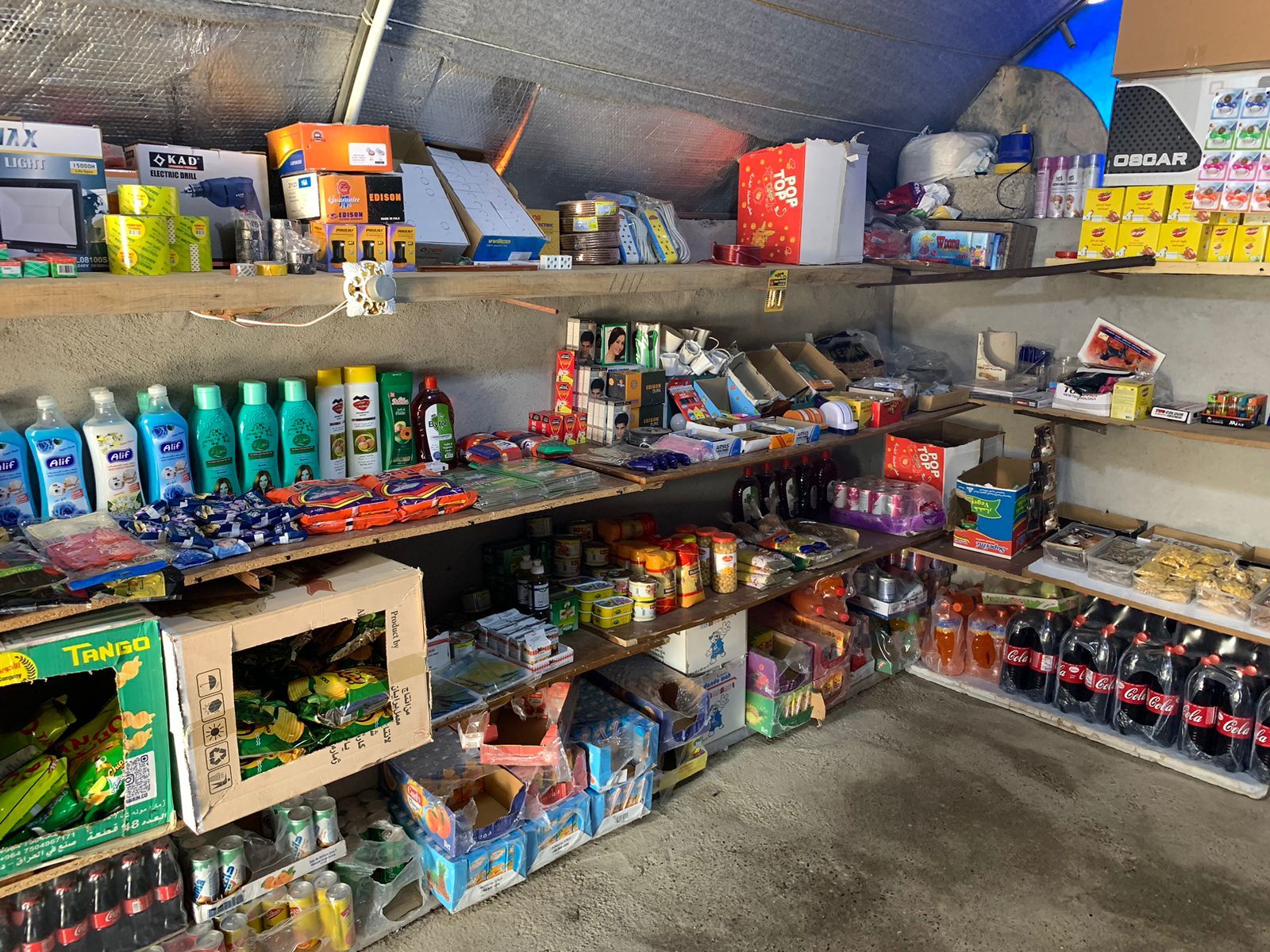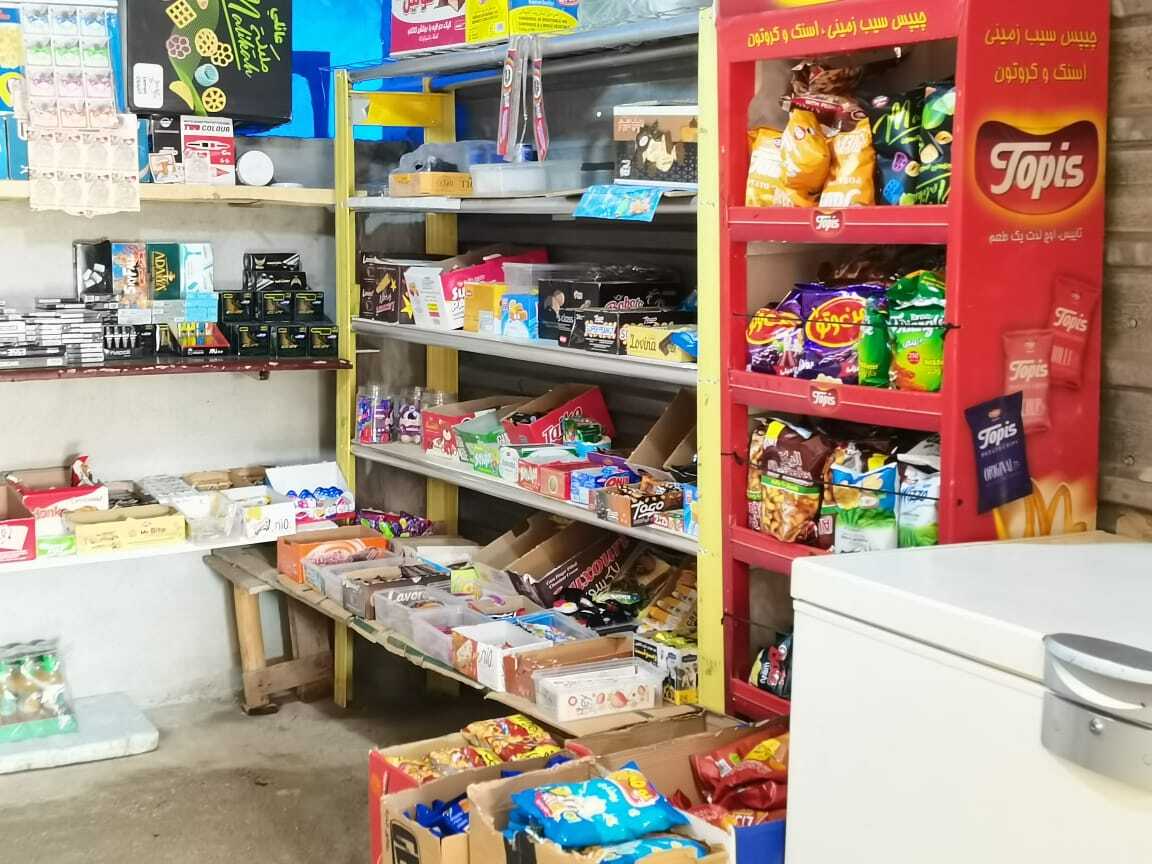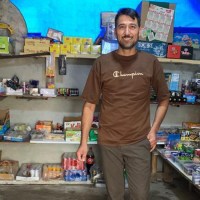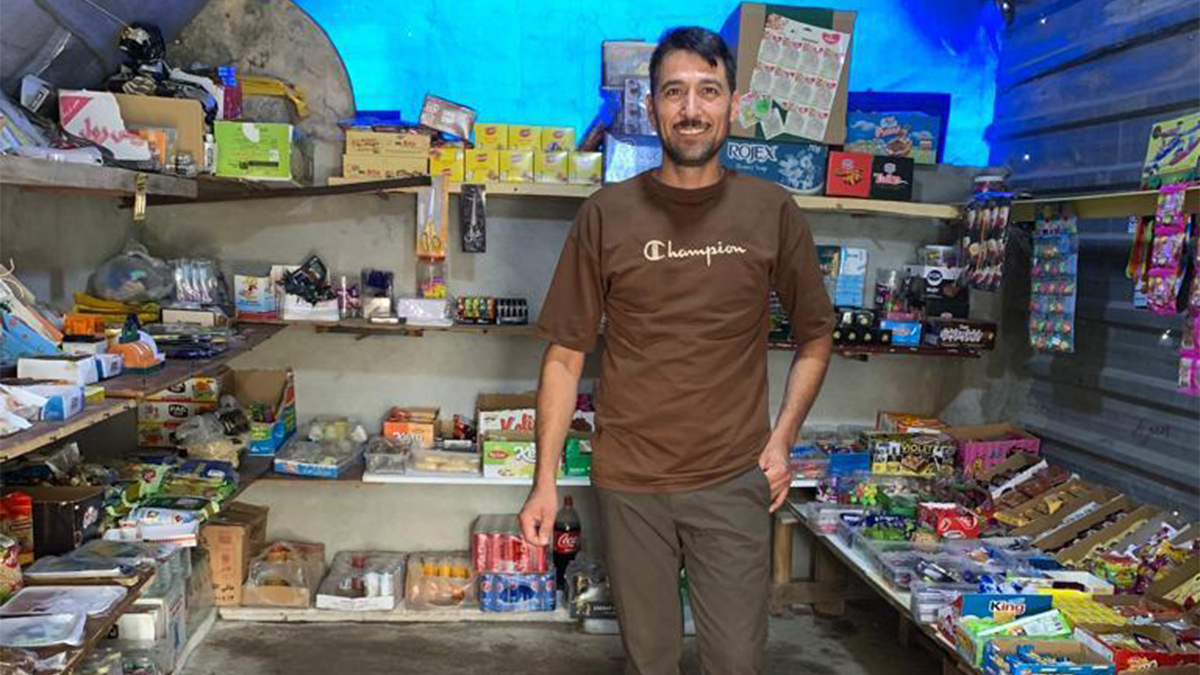“I will never forget that day when my little son asked me to bring a piece of bread to the earth,” Khodaida admits, his eyebrows going all funny. He, his wife, and his children fled to the top of Mount Sinjar when ISIS attacked their community back in August, 2014. There was no food or water. Frying under the scorching daytime sun but freezing on the mountain top at night felt like nature’s cruel joke. Khodaida didn’t know if he and his family would survive or not.
After ISIS was driven away from the villages surrounding Mount Sinjar, Khodaida and his family returned to find their home destroyed. Life went from devastating to unimaginable. They were displaced to an internally displaced persons (IDP) camp near Zakho, in northern Iraq. His wife suffered from post-traumatic stress and couldn’t care for herself or their children. A day laborer, Khodaida couldn’t work because he had to take care of his family. Then, his two-month old needed surgery, and Khodaida went four thousand dollars into debt to pay for it.
What parent wouldn’t do everything they could for their children?
Our jobs empowerment team met Khodaida 13 months ago upon referral by the camp’s management. Thanks to your generosity, Khodaida received a small business grant to open his own business and a year of one-to-one coaching to make sure his business thrived. Based on his prior work experience, Khodaida decided to open an electrical supplies store inside the camp where he and his family still live. Devastated by violent conflict, their former neighborhood lacks basic services and is plagued by security concerns.
Khodaida set ambitious goals: “If you can pay back your debts and help your family, provide for their needs, buy clothes and school supplies and expenses for the students, this means this business is super helpful and will be my future.”
His first month was really tough. His income was less than three dollars a day. When our jobs coach visited him the second month, Khodaida observed, “I have electrical supplies, but there are no customers. How can I be successful in this business?”


Our coach shared many examples of successful business owners before they discussed why these businesses were successful and what Khodaida could learn from those entrepreneurs’ experiences. Khodaida decided to expand his shop’s offerings by adding breakfast items, sweets, snacks, and drinks based on his surrounding community’s needs. After a month, Khodaida’s income skyrocketed from three dollars a day to sixty dollars on some days!
A year on, Khodaida is almost out of debt for his son’s surgery. As he works to pay down the remaining $500, he is also growing his business. He bought three refrigerators to offer more food items and now sells prepaid internet and mobile phone cards. He works hard, running his shop from 7 am to 1 am daily, and is proud of what he has accomplished. But the hardships he and his family faced on top of Mount Sinjar are never far from his mind.
Many of the camp’s residents come to Khodaida’s shop. They don’t always have money, but a lack of funds doesn’t stop hunger. Khodaida helps many people get what they need for their families, whether they can pay or not. Some customers have shopped on credit for months. Collectively, Khodaida is owed approximately $2,000, but he doesn’t mind. Instead, he is excited to help others as he once needed help himself.
Khodaida is a living embodiment of how we belong to each other. Month after month, he lets vulnerable people buy on credit because he can. His generosity infuses his store with an infectious warmth. His customers include Kurds, Yazidis, and Muslims, who have become friends with Khodaida and with one another through the shop. Despite their religious and ethnic differences, they support one another, sharing in the happy or poignant moments that build a life.
On our last visit, Khodaida again expressed his gratitude for our jobs empowerment program. Not only has his livelihood restored his agency, but it has intensified his sense of purpose because he is able to support others. Violence may decimate our homes or communities, but it cannot destroy our resilience of heart, the very essence of our humanity. As long as we choose to love anyway, there is hope we can build a more peaceful world.


